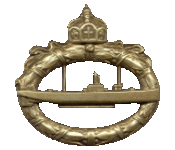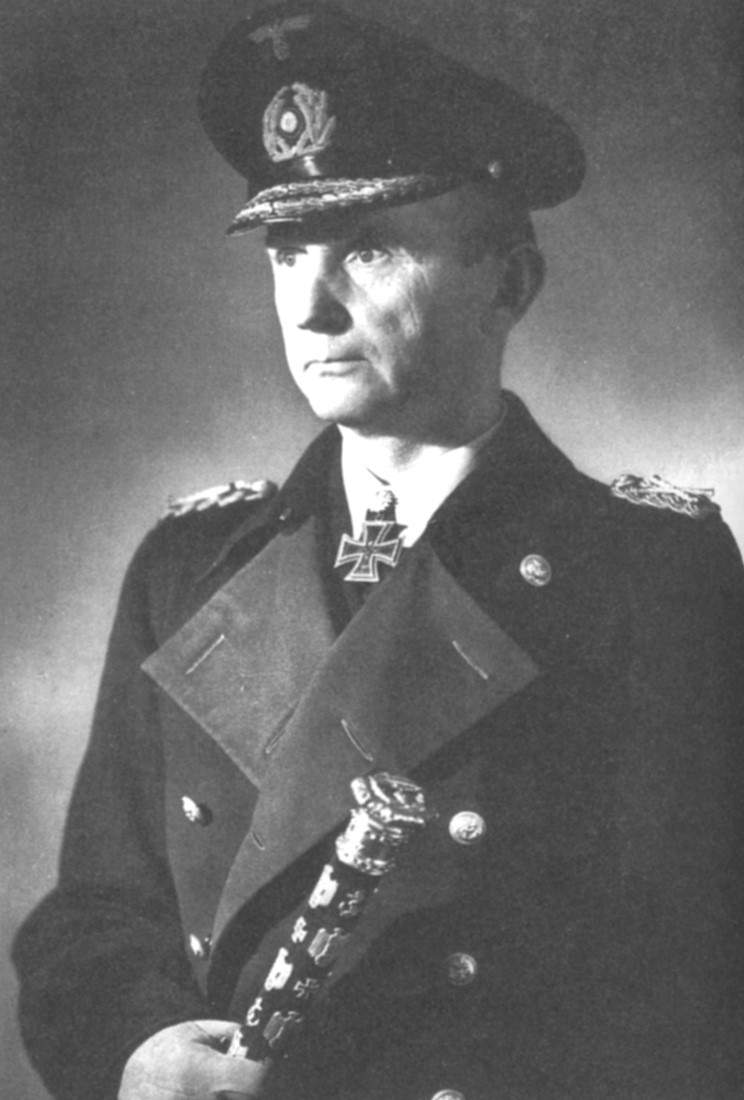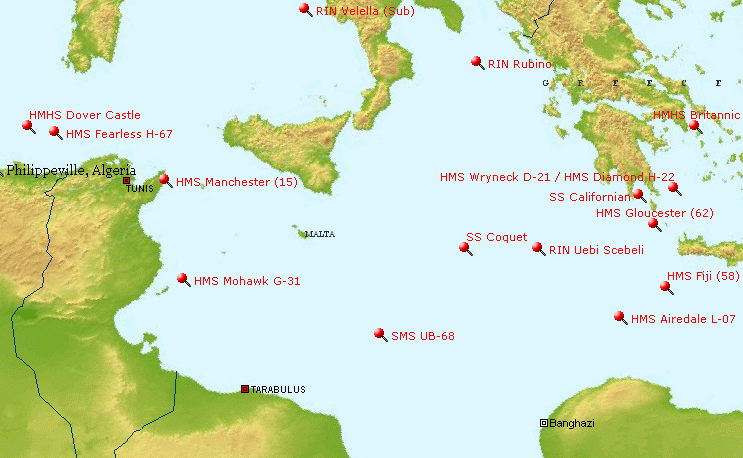On Oct. 5, 1917 the SMS UB-68 was commissioned into the Kaiserliche Marine, one day short of a year later she was lost. She sailed from Pola on Sept. 25, 1918 for a patrol in the Mediterranean, she also had a new commander, this was her second commander and his first patrol in this boat. After passing the Otranto Barrage the boat made it's way to a position east of Malta in the convoy lanes.
On Oct. 4, 1918 in the early morning hours a convoy was sighted and an attack was made on a steamer, the commander of the UB-68 later said they had observed a hit, but did not observe the ship to sink. The ship, SS Oopac did in fact sink and the UB-68 moved into position for another attack.
Between 02:30 and 03:30 UB-68 fired two more torpedoes, both of which missed their intended targets, but the boat continued to follow the convoy, apparently unnoticed by the escorts. Sunrise came swiftly and this caused the UB-68 to submerge, however there was a problem with the dive.
Soon after she went under the boat became uncontrollable and began to dive at an alarming rate, so the hydroplanes were adjusted, but this caused the boat to break the surface, so the chief engineer flooded the ballast tanks and sent all men forward. This worked, the boat went under, but she now was heading down far too fast. The tanks were blown when she reached a depth of 260' and she again headed for the surface.
When she reached 100' the tanks were flooded again and she began to dive even faster than before. Reaching a depth of over 330' (80' deeper than the design allowed) all tanks were blown and the boat rose to the surface, stern first. This time there was no escape for the boat.
She broke the surface and was shelled by HMS Snapdragon and HM Trawler Cradosin, after receiving two hits the commander ordered his men to abandon the boat, he also ordered the boat scuttled. The engineer opened the sea cocks and the boat sank in 8 seconds taking the engineer with her.
The survivors were picked up by Snapdragon and they included the commander, however three of the crew were not found, they had either drowned or gone down with the engineer when UB-68 sank. The captain of Snapdragon received the commander of UB-68 with a handshake and said "Now, captain we are quits. Tonight you have sunk one of my steamers, now I have sunk you". The U-boat commander was given a bathrobe to wear as he came aboard with only a t-shirt, underwear and one sock and now for him the war was over.
They were interned at Malta and in November were being moved to England when the war ended. The U-boat commander was released in June of 1919 and returned to his hometown of Kiel. While a prisoner he had a lot of time to think, and this he did. Not of what he would do after the war, but of how to make the U-boat a more effective weapon in the next war. He believed that the U-boat could have been more successful if it had been used in a pack, rather than singular attacks. This method had been used to some small extent at the end of the Great War, and in fact the day his boat was lost it was supposed to have been operating with another U-boat, but it was held up for repairs.
The next war, he thought, the U-boat would be used in Wolf Packs, running on the surface at night attacking from all sides at once, devastating the convoys and making it hard for the escorts to locate them. While one escort was searching for one boat, others would be free to fire at will. Ships sunk would require an escort to stop and search for survivors, this again would allow other boats freedom from attack and freedom to sink ships.
Grand thoughts for a man who lost his boat and now was a prisoner, however these facts did not seem to effect him, he knew there would be another war and he wanted to be a part of it... and that he was. The commander, Oberleutnant zur See
Karl Dönitz, later became Grossadmiral and head of the U-boat service. After Raeder's retirement he became
Oberbefehlshaber der Kriegsmarine (Commander-in-Chief of the Kriegsmarine) and after Hitler's death he became
Reichspräsident of the Greater German Reich. He was tried and convicted of war crimes at Nürnberg and imprisoned at Spandau until 1956. Karl Dönitz died on Christmas Eve 1980 of a heart attack.


